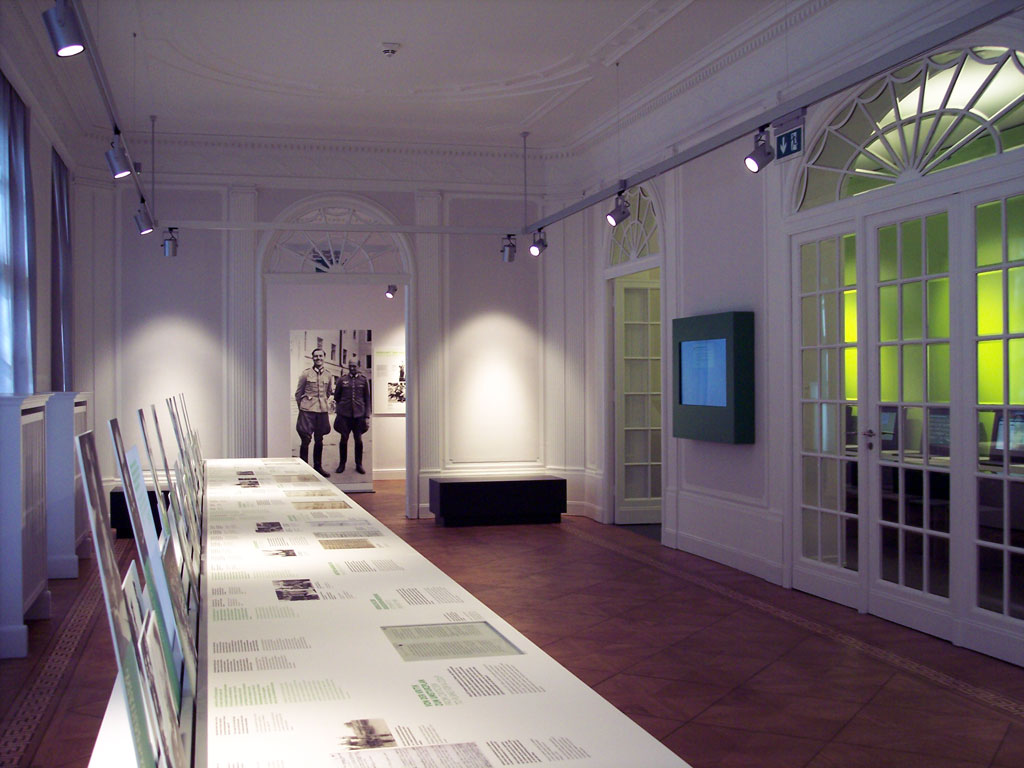|
Digital meets Culture https://www.digitalmeetsculture.net/article/german-resistance-memorial-center-in-berlin-new-permanent-exhibition/ Export date: Thu Apr 18 23:42:57 2024 / +0000 GMT |
German Resistance Memorial Center in Berlin: New permanent Exhibition On July 1 2014, the Federal Chancellor of Germany Angela Merkel opened the new permanent exhibition “Resistance against National Socialism” in the German Resistance Memorial Center in Berlin. The entire social breadth and ideological diversity of the fight against the National Socialist dictatorship is are documented in 18 topic areas. The barrier-free permanent exhibition is accompanied by a wide range of media and materials, along with an audio guide in seven languages and a video guide in German Sign Language. Our Europeana Space partner Museumsmedien produced the extensive digital media offers for the exhibition. Links: Federal Chancellor : http://www.bundeskanzlerin.de/Content/DE/Artikel/2014/07/2014-07-01-gedenken-widerstand-bkin.html The German Resistance Memorial Center: http://www.gdw-berlin.de/en/home/ Deeper information to the topic of the exhibition The German Resistance Memorial Center is located in the historical site of the attempted coup d'état of July 20, 1944, in the former headquarters of the Army High Command. Here, starting in 1942, several officers close to Friedrich Olbricht prepared the coup. After Claus Schenk Graf von Stauffenberg's attempted assassination of Adolf Hitler in the Führer's headquarters in East Prussia, Operation Valkyrie was set into action here in the Bendler Block in the afternoon of July 20, 1944. The coup attempt by civilian and military circles failed. That very same night, Ludwig Beck, Claus Schenk Graf von Stauffenberg, Albrecht Ritter Mertz von Quirnheim, Werner von Haeften (pron. Haften) and Friedrich Olbricht were shot dead. Since 1953 a memorial in the inner courtyard has commemorated those events. In 1980 the commemorative courtyard was given its current form. Nowadays the German Resistance Memorial Center doesn't commemorate only the coup attempt of July 20th, 1944, but also many people and groups that resisted National Socialist injustice. The exhibition shows the entire breadth and diversity of opposition to the regime and reveals the different traditions, motives, aims and situations that enabled and influenced resistance to National Socialism between 1933 and 1945. In 1933, most Germans welcomed the new rulers and their policies. Only a minority reacting to the violation of human rights and destruction of democracy put up resistance. Those people used the scope for manoeuvre that exists, even in a dictatorship, for compassion and political activity. Resistance became a clear part of the process of contending with National Socialism and its crimes. By presenting what happened to individuals and the how resistance networks emerged, as well as the motivations and campaigns of the various resistance groups, we show the many and varied dimensions of the struggle against the Nazi dictatorship. |





